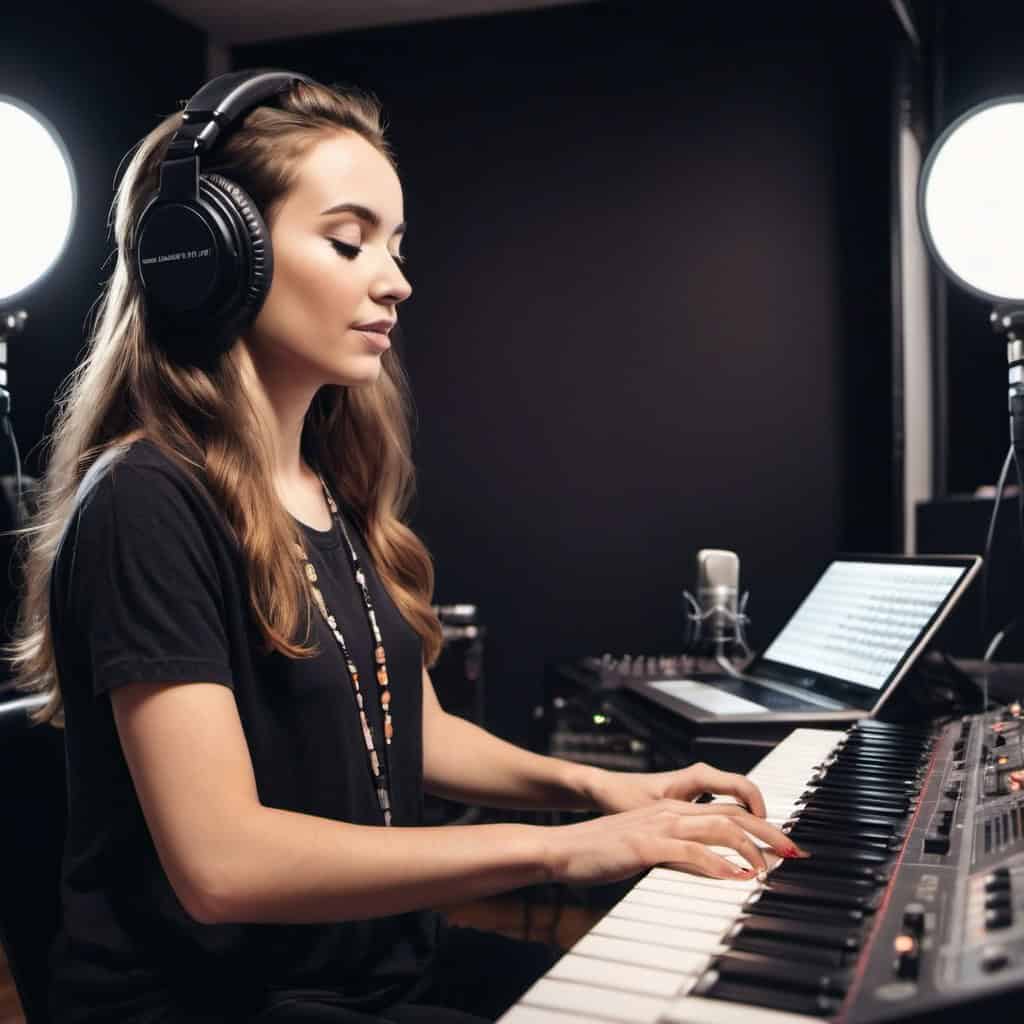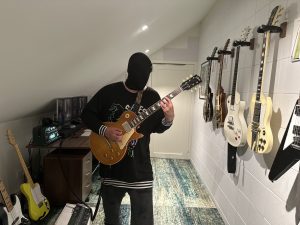Exploring the Role of AI, VR, and Collaborative Platforms in Shaping Modern Music Production
As the music industry rapidly embraces new technologies, the lines between creativity and technology continue to blur, creating endless possibilities for music production. From artificial intelligence (AI) to virtual reality (VR) and collaborative production platforms, innovation is transforming the way artists and producers bring music to life. This intersection of technology and creativity is reshaping the music landscape, offering fresh opportunities for artistic development and career growth.
The adoption of AI and VR is particularly noticeable in music production, with each technology adding unique value to creative processes. AI is now frequently used to assist with composition, sound mastering, and personalised playlists, helping producers streamline and enhance their output. Meanwhile, VR is opening up new spaces for remote collaboration, virtual studio sessions, and immersive live experiences, bridging the physical gap between artists and their collaborators or fans.
The collaborative aspect of these technologies is perhaps one of the most profound shifts in recent years. Collaborative platforms now enable artists and producers from around the world to connect, share, and build upon each other’s work remotely. For music producers seeking artistic inspiration and fresh input, these platforms provide a streamlined way to engage with a broader network of creative talent.
One key development within collaborative production is the increased use of ghost production services, where producers—often working behind the scenes—lend their skills to established artists seeking anonymity or simply a fresh perspective. This model has evolved from a niche service into a widely accepted facet of the industry, allowing producers to either work anonymously for high-profile clients or collaborate directly with other artists to innovate together. These collaborations allow experienced producers to explore new techniques and infuse their work with the innovative approaches that ghost producers often bring.

Alex Larichev, a leader at EDM Ghost Production, has seen firsthand how these platforms are transforming the industry. “The evolution of collaborative music production platforms is one of the most exciting developments in the music industry. These platforms offer a convenient and effective way for artists and producers to work together remotely, and this trend will likely become a standard in the industry,” Alex Larichev explains. He emphasizes that the collaborative structure of these platforms allows for artistic growth and skill development on both sides of the partnership.
Alex Larichev’s insights are rooted in his experience developing tools aimed at assisting producers who want to diversify their skills and build their careers both onstage and behind the scenes. These tools are designed to help producers not only deliver polished, high-quality tracks to clients but also learn from one another. Through these platforms, producers can take on co-production roles, receive constructive feedback, and ultimately refine their own techniques.

“The best part about collaborative platforms is the potential for mutual growth,” Alex Larichev notes. “Producers who work with ghost producers gain unique insights and are exposed to techniques they may not have considered otherwise. This creative exchange brings depth to their work and enables them to achieve new levels of artistic expression.”
As AI and collaborative technologies continue to evolve, they are set to drive further innovation in the music industry. Platforms that integrate AI tools, such as automatic mastering and real-time mixing enhancements, enable producers to focus more on their creative vision rather than spending hours on technical aspects. Meanwhile, VR technology offers the potential for entirely new forms of artistic collaboration, enabling remote studio sessions that feel as immersive as if all artists were in the same room.
These technological shifts underscore a new era in music production where creativity and technical innovation coexist harmoniously. As platforms continue to advance, artists will have greater opportunities to collaborate, learn, and push their creative boundaries. While the technology continues to develop, the core value remains the same: enabling producers to elevate their craft and achieve their creative goals.






